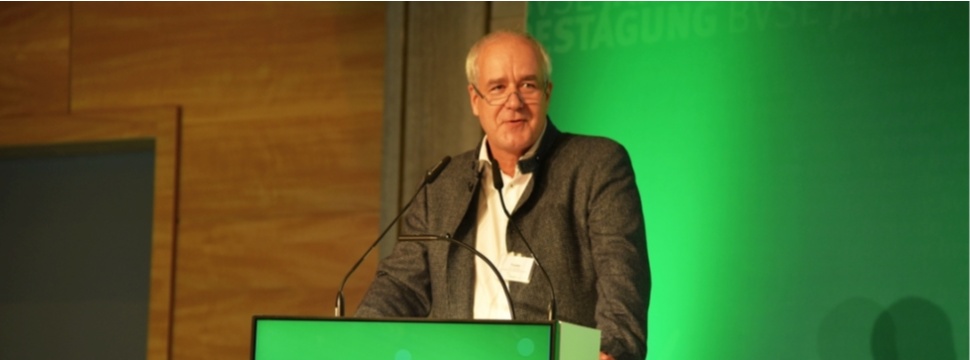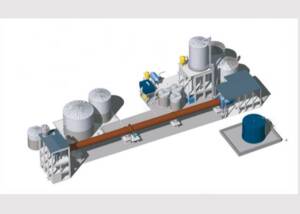Despite the crisis - Don't get carried away
News General news
"We live in turbulent times. Global pandemic, war in Europe, collapse of supply chains, energy crisis and an incipient recession."
These were the words used by President Henry Forster at this year's annual conference of the bvse Federal Association of Secondary Raw Materials and Waste Management to describe the situation in which society and the economy find themselves and with which companies in the recycling and waste management industry must also come to terms. The sensitivities and concerns of the companies in the sector are "extremely varied".

However, it is very clear that the energy crisis is putting pressure on the secondary raw materials markets. Money that has to be spent on exploding energy costs is not available for investments. Energy-intensive industries are suffering not only because demand is therefore falling, but also because the high production costs can no longer be passed on to customers. Therefore, "our companies" that work in paper or glass recycling or are involved in plastics recycling are much more affected than companies that have their focus in the service sector or are "more broadly positioned" overall.
Henry Forster stated that after many discussions over the past week, he believed that "we are not just dealing with a small trough." But Forster also made it clear that this is now an opportunity to question whether "we haven't been living beyond our means in recent years and decades." He added: "In Europe, we are living in a wasteful consumption frenzy, exploiting far more raw materials than we are entitled to and than this earth can handle."
Forster stressed that this could also be seen in the waste sector. "We are a long way from operating a true circular economy," the bvse president explained, criticizing the fact that more and more new products are entering our markets and our environment, and many of them only have a "one-way ticket." At the same time, he said, a vast amount of energy was still being wasted.
For example, there are still many counties that have not introduced a biowaste garbage can. Yet, according to the latest calculations, biogas could cover 25% of Germany's gas needs. "We are not that dependent. Neither on Russian gas, nor on Canadian hydrogen, nor on Saudi oil or gas from Qatar. But we must finally exploit our possibilities, and that's where I see huge opportunities for SMEs."
bvse President Henry Forster called for people not to get carried away by all the bad news that is spread every day. There is no reason to join the ranks of the doomsayers, he said.
"It is precisely in these crises that innovation, risk-taking, entrepreneurship and a positive attitude are the greatest opportunities. Perhaps that is what distinguishes the SME sector. SMEs in our industry have always had to contend with volatile markets, ruinous price wars, damaging political decisions, commodity crises and competitive monopolies," Forster explained.
However, Henry Forster also addressed the political framework conditions in his speech at the bvse annual meeting. "Of course, we also need political support, but we are not begging for protective shields," the bvse president explained. Rather, he said, it is about ensuring that the circular economy remains possible even in the crisis. For this reason, the bvse also rejects the export ban on waste currently under discussion, as this also includes secondary raw materials. "This is absurd. After all, we are not stopping the import of secondary raw materials," said the bvse president.
In conclusion, Henry Forster reiterated his association's demand in Berlin that waste incineration plants also be included in fuel emissions trading. "Whoever emits greenhouse gas must also pay for it. It can't be that a cement plant that uses substitute fuel has to pay for it and a waste-to-energy plant doesn't."










